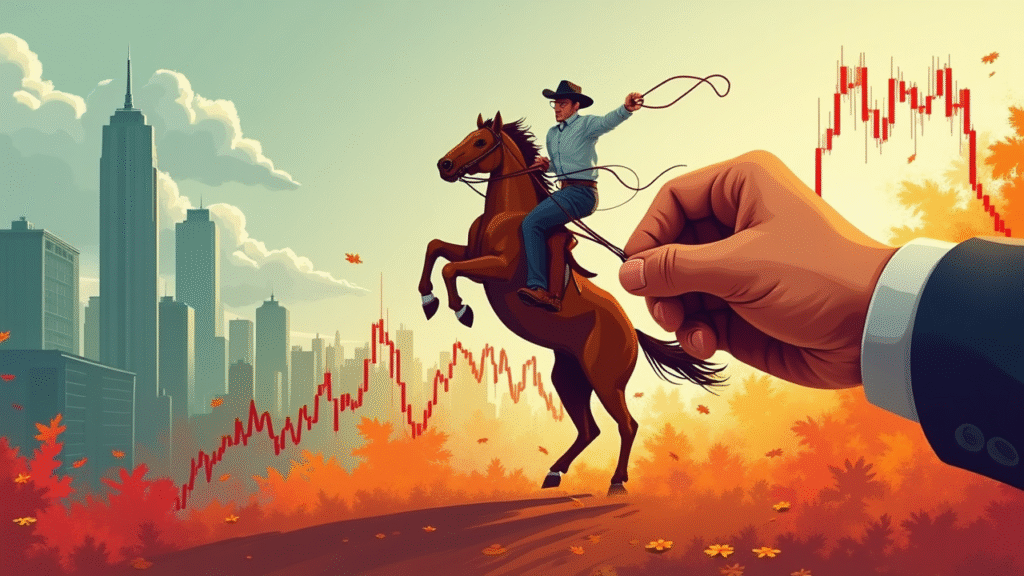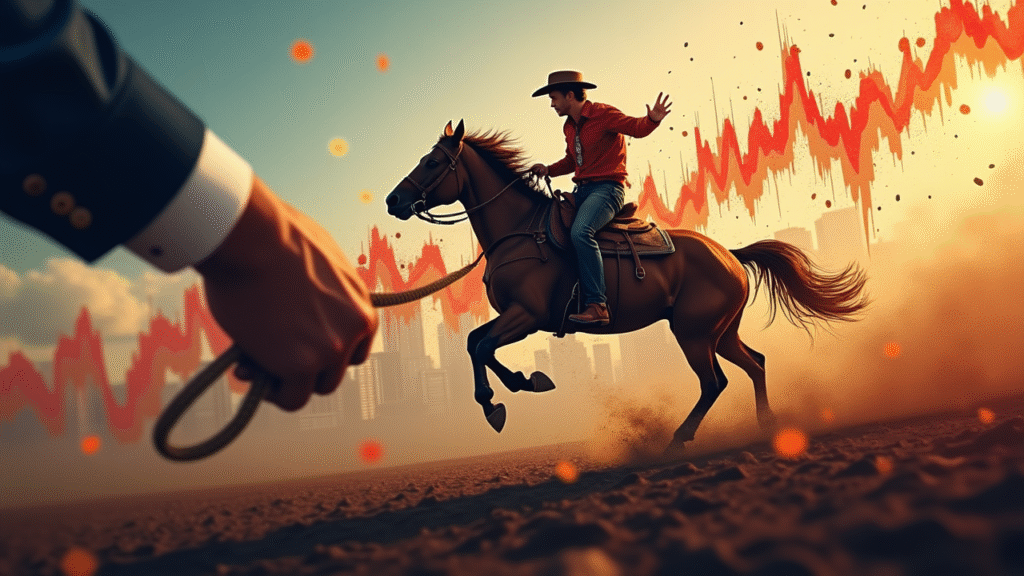What is Emotional Discipline in Penny Stock Trading?
In trading, your biggest enemy isn’t the market, it’s you.
Penny stocks are wild. One moment they’re up 70%, the next they’ve crashed 90%. If you don’t learn to control your emotions, they’ll control you.
Most people think trading is about charts and data. But the real game is internal. Emotions move faster than stock prices. Especially when those prices are moving in cents, not dollars.
This article is about how to keep your cool when your money is on the line.
The Real Reason Most Penny Stock Traders Lose
Let’s get honest: most traders lose money not because they’re wrong, but because they’re emotional.
Here’s what typically happens:
- You buy a penny stock at $0.50. It jumps to $0.80. You feel like a genius.
- You hold it longer. It dips to $0.60. You panic, hoping it will bounce.
- It crashes to $0.30. You sell. Angry, scared, and confused.
What happened? You didn’t have a plan. You had emotions.
Emotions trick you:
- Greed says: “Hold for more.”
- Fear says: “Sell before it hits zero.”
- Hope says: “Maybe it’ll come back.”
- Regret whispers: “Why didn’t I sell earlier?”

Trading Penny Stocks Feels Like Gambling, Because It Can Be
The cheap entry price makes it easy to place impulsive bets. $50 here, $100 there. You don’t feel the pain immediately, so you ignore risk. But that’s like playing roulette and thinking you’re investing.
What makes you a pro is emotional discipline, not prediction accuracy.
How to Train Your Emotions (and Trade Like a Grown-Up)
1. Use Small Positions
Never risk more than you’re willing to lose. If your heart races every time the price moves, you’re trading too big.
Rule of thumb: If you’re checking the stock every 2 minutes, you’re emotionally overinvested.
2. Set Your Exit Before You Enter
Every trade should have:
- A profit target (e.g., 30% gain)
- A stop-loss (e.g., 15% loss)
Write it down. Stick to it. Make your decisions when you’re calm, not when your money is flying around the screen.
3. Journal Every Trade
After each trade, ask:
- What did I feel before/during/after?
- Did I follow my plan?
- What can I improve emotionally?
Over time, you’ll see patterns. Maybe you panic-sell too early. Or maybe you hold losers too long. Journaling is your mirror.
Also read this: Emotional Discipline in Trading: How to Stay Calm During Drawdowns
4. Don’t Trade When You’re Emotional
Bad day at work? Breakup? Overconfident after a win?
Don’t trade. Emotional state affects judgment. And penny stocks move too fast for cloudy thinking.
5. Create a Pre-Trade Ritual
Something as simple as:
- Taking 3 deep breaths
- Reviewing your rules
- Reminding yourself: “I don’t chase. I don’t panic. I follow my edge.”
A ritual calms your nervous system and shifts you into focus mode.

What Happens When You Master Emotion?
You stop reacting. You start responding.
You won’t FOMO into hype.
You won’t panic-sell at the bottom.
You won’t revenge-trade after a loss.
You start seeing patterns. You make fewer trades, but better ones. And over time, consistency beats chaos.
Remember: In penny stocks, emotional intelligence is your edge. The market punishes noise and rewards patience.
Simplified Chart: Emotion vs. Performance
| Emotion | Behavior | Outcome |
|---|---|---|
| Greed | Overtrading | Big losses |
| Fear | Early exits | Missed profits |
| FOMO | Chasing spikes | Buying the top |
| Discipline | Sticking to plan | Long-term success |
Jared Tendler: Trading Psychology Resources
Final Thoughts: Don’t Just Trade—Grow
Penny stocks are exciting. But they’re also emotional landmines. If you want to last in this game, don’t just study the market, study yourself.
“Emotional control is the superpower no chart can teach.”
The best penny stock traders aren’t fortune-tellers. They’re emotional bodybuilders. They feel the same fear, greed, and excitement, but they don’t let those feelings make the decisions.
Your journey to becoming a pro starts with mastering the one thing you can always control: you.
FAQs
Why do emotions matter so much in penny stock trading?
Because penny stocks are volatile, even small news or hype can move prices fast. Without emotional control, traders make impulsive decisions that lead to losses.
What is the best way to manage emotions while trading?
Start with smaller trades, have a clear plan (entry, exit, stop-loss), journal your trades, and take breaks if you’re feeling emotional. Focus on discipline over profit.
Is emotional trading the same as gambling?
Yes, if you trade based on feelings instead of strategy, you’re not investing, you’re gambling. Real traders follow systems, not moods.

Disclaimer
This content is for informational and educational purposes only and should not be considered financial or investment advice. Penny stock trading involves a high level of risk. Always conduct your own research or consult a licensed financial advisor before making any financial decisions

Yap, still difficult to control emotions